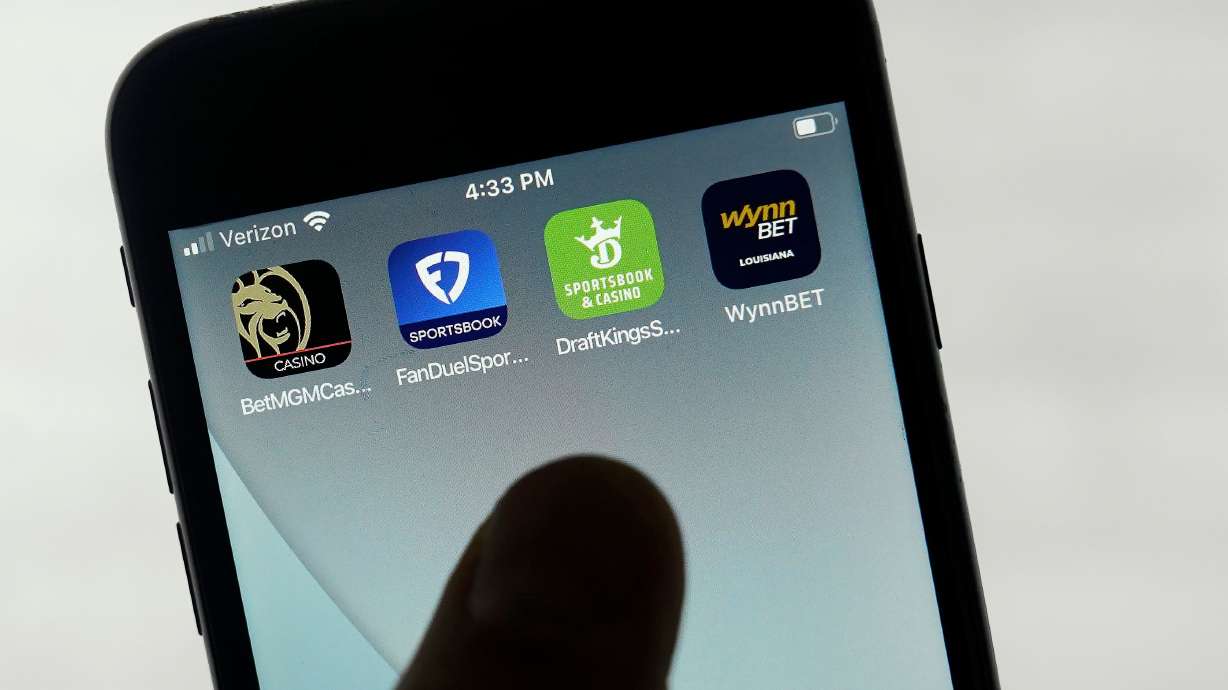Estimated read time: 4-5 minutes
- Sports betting has surged since a 2018 Supreme Court decision, increasing gambling addiction.
- A study found sports wagers rose from $4.9 billion in 2017 to $121.1 billion in 2023.
- Researchers recommend increased funding and regulations to mitigate gambling addiction risks.
SALT LAKE CITY — As sports betting has surged, so has the number of people seeking a way out of a gambling addiction, according to a new study in JAMA Internal Medicine that says millions of people are looking for help.
The team of researchers, led by the University of California San Diego Qualcomm Institute and School of Medicine, said the study shows a dramatic surge in sports betting since a 2018 Supreme Court decision that made it easier to gamble.
"When the Supreme Court legalized sportsbooks — a venue where people can wager on various sports competitions — in Murphy v. NCAA, public health experts paid little attention," said the study's senior author John W. Ayers, who is vice chief of innovation in the Division of Infectious Disease and Global Public Health, deputy director of informatics at UC San Diego Altman Clinical and Translational Research Institute, and Qualcomm Institute scientist, in a written statement. "Now, sportsbooks have expanded from a single state to 38 states, with hundreds of billions of wagers, mostly online, coinciding with record-breaking demand for help with gambling addiction as millions seek help."
According to the study, total sports wagers "skyrocketed" from $4.9 billion in 2017 to $121.1 billion in 2023. That year, 94% of wagers were placed online.
"Sports betting has become deeply embedded in our culture," Matthew Allen, a third-year medical student, said in the news release. "From relentless advertising to social media feeds and in-game commentary, sportsbooks are now everywhere. What was once a taboo activity, confined to the fringes of society, has been completely normalized."
The study notes that gambling addiction is a recognized disorder in the Diagnostic and Statistical Manual of Mental Disorders. But there's no systematic surveillance, said one of the study authors, Dr. Kevin Yang, a third-year resident physician in the Division of Psychiatry. "Without systematic surveillance, we are flying blind while millions bet on sports."

Counting queries for gambling help
The researchers analyzed aggregate Google search trends, looking for those that mentioned gambling, addiction, addict, anonymous or hotline from Jan. 1, 2016, to mid-2024.
"Many people struggling with addiction don't openly discuss it, but they do turn to the internet for answers," Dr. Davey Smith, professor of medicine and director of the Altman institute, said in the release. "By analyzing search trends we can gain real-time insights into the true scale of gambling addiction in the U.S."
The researchers said that queries for help with gambling addiction — including "Am I addicted to gambling?"— have increased 23% nationally from the time the court case was decided through last June. "This corresponds with approximately 6.5 to 7.3 million searches for gambling addiction help-seeking nationally, with 180,000 monthly searches at its peak," per the release.
The researchers said that significant increased demand for help for gambling addiction was seen in these states once they opened sportsbooks: Illinois, Massachusetts, Michigan, New Jersey, New York, Ohio, Pennsylvania and Virginia. In all of those states, increased demand for seeking help rose at least 30%. In Ohio, it was up 67%.
Seeking gambling addiction help was especially strong for those who bet online, compared to traditional brick-and-mortar sportsbooks.
NPR reported on a study by the Illinois Department of Human Services that showed teens and young adults had the highest prevalence of online gaming.
Mitigating gambling risks
The study authors have several recommendations to mitigate the risks of sports betting. They called for:
- Increased funding for gambling addiction services, which could be paid for using sportsbooks tax revenues.
- Enhanced advertising rules like those for tobacco and alcohol that put curbs on where ads can be and who is targeted.
- Clinical training programs for health care professionals to boost diagnosis and treatment of gambling addiction.
- Betting limits, age restrictions, enforced breaks and restrictions on gambling with credit cards for online sportsbooks.
- Public awareness campaigns aimed at highlighting risks and warning signs and encouraging early intervention.
- Ongoing data sharing and research collaborations to find the interventions that work and to refine policies in real time.
"Sportsbooks regulations are lacking because the Supreme Court, not legislators, legalized them," concluded Ayers. "Congress must act now by passing commonsense safeguards. History has shown that unchecked industries — whether tobacco or opioids — inflict immense harm before regulations catch up. We can either take proactive steps to prevent gambling-related harms or repeat past mistakes and pay the price later."
The National Council on Problem Gambling has called on Congress to support the Gambling Addiction Recovery, Investment and Treatment Act by Sen. Richard Blumenthal, D-Conn., and Rep. Andrea Salinas, D-Ore. "This legislation would establish the first-ever federal funding stream to support problem gambling treatment, prevention and research efforts nationwide," the council said.
The bill directs half of the federal sports betting excise tax to fund gambling addiction treatment and research programs.










